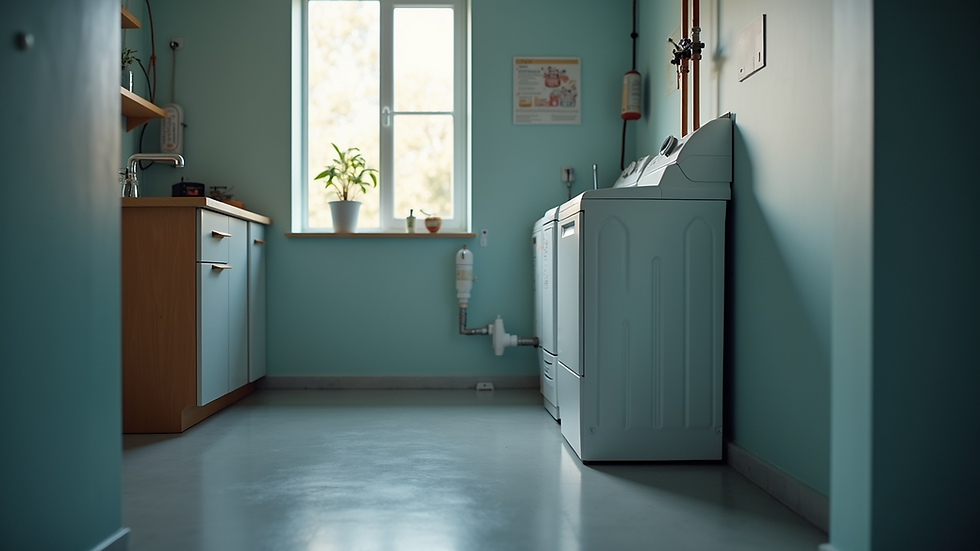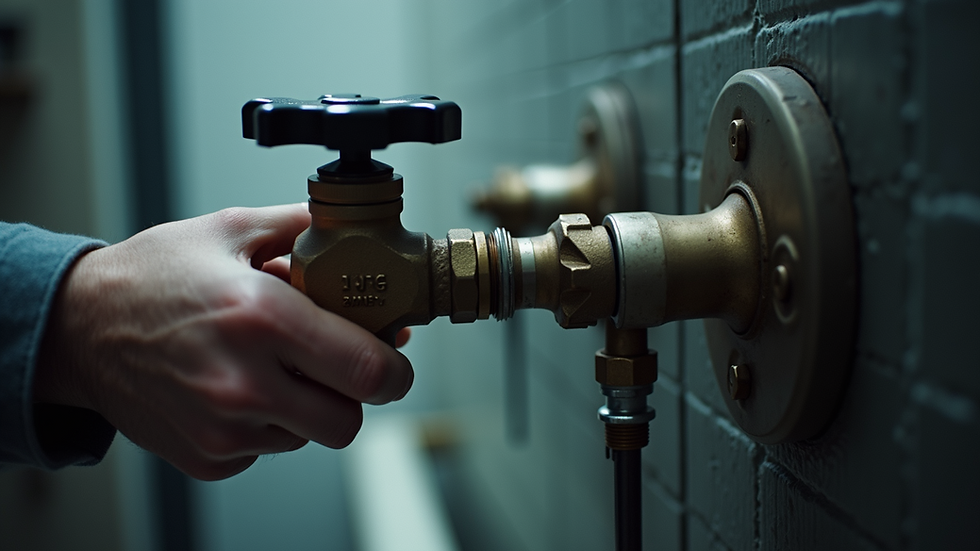How Hard Water Affects Your Home and Appliances
- Jamie Smith
- Oct 13, 2025
- 4 min read
Hard water is a common issue in many households, yet its impact is often underestimated. It contains high levels of minerals like calcium and magnesium, which can cause a range of problems in your home. From damaging your plumbing to reducing the efficiency of your appliances, hard water can lead to costly repairs and higher energy bills. Understanding how hard water affects your home is essential for maintaining a comfortable and efficient living environment.
What Is Hard Water and How Does It Affect Your Home?
Hard water is water that contains a significant amount of dissolved minerals, primarily calcium and magnesium. These minerals accumulate as water passes through soil and rocks before reaching your taps. While hard water is not harmful to health, it can cause several issues around the house.
One of the most noticeable effects is the buildup of limescale. This white, chalky deposit forms on faucets, showerheads, and inside pipes. Over time, limescale narrows the diameter of pipes, reducing water flow and increasing pressure on your plumbing system. This can lead to leaks and pipe bursts if left untreated.
Hard water also affects your skin and hair. It can leave a residue that makes skin feel dry and hair look dull. Soap and shampoo do not lather well in hard water, which means you may use more products to get clean, increasing your household expenses.

The Impact of Hard Water on Appliances and Plumbing
Hard water can significantly reduce the lifespan and efficiency of household appliances. Washing machines, dishwashers, and kettles are particularly vulnerable. The minerals in hard water form deposits inside these appliances, causing them to work harder and use more energy.
For example, in washing machines, limescale can build up on heating elements, making them less effective at heating water. This results in longer wash cycles and higher electricity bills. Similarly, dishwashers may leave spots on glassware and reduce cleaning performance due to mineral deposits.
Water heaters are also affected. Limescale accumulation inside the tank reduces heat transfer, causing the heater to consume more energy to maintain the desired temperature. This not only increases your energy bills but also shortens the appliance's lifespan.
Plumbing systems suffer as well. Mineral deposits can clog pipes, leading to reduced water pressure and increased risk of blockages. Over time, this can cause costly repairs or replacements.

Do Water Softeners Make Your Water Bill Go Up?
A common concern when considering water softeners is whether they increase water bills. Water softeners work by exchanging calcium and magnesium ions with sodium or potassium ions, effectively reducing hardness. This process requires some water for regeneration, which is the cleaning cycle of the softener.
While water softeners do use additional water during regeneration, the amount is generally small compared to the water savings achieved by preventing scale buildup. Appliances and plumbing systems operate more efficiently with softened water, which can lead to lower water consumption overall.
Moreover, softened water improves soap efficiency, meaning you use less detergent and cleaning products. This can indirectly reduce water usage since less rinsing is needed.
In summary, any slight increase in water use from the softener's regeneration cycle is often offset by the savings in water and energy consumption throughout your home.

Practical Tips to Manage Hard Water in Your Home
Managing hard water involves both prevention and treatment. Here are some practical steps you can take:
Install a Water Softener: This is the most effective way to combat hard water. A water softener removes minerals that cause hardness, protecting your appliances and plumbing. You can learn more about water softener benefits and find options suitable for your home.
Use Descaling Products: Regularly use descaling agents in kettles, washing machines, and dishwashers to remove mineral buildup.
Clean Fixtures Frequently: Wipe down taps, showerheads, and sinks to prevent limescale accumulation.
Check Your Plumbing: Have a professional inspect your pipes for scale buildup and consider pipe replacement if necessary.
Adjust Appliance Settings: Use higher temperature settings sparingly, as hot water accelerates limescale formation.
By following these tips, you can reduce the negative effects of hard water and extend the life of your home’s plumbing and appliances.
Long-Term Benefits of Addressing Hard Water Issues
Taking action against hard water problems can save you money and improve your quality of life. Softened water protects your appliances, reducing repair and replacement costs. It also lowers energy bills by improving appliance efficiency.
Your skin and hair will feel softer and cleaner, and your clothes will look brighter and last longer. Additionally, plumbing systems will maintain better water flow, reducing the risk of costly leaks and blockages.
Investing in solutions like water softeners not only protects your home but also contributes to environmental sustainability by reducing water and energy waste.
By understanding the impact of hard water and taking proactive steps, you can enjoy a healthier, more efficient home environment for years to come.





Comments